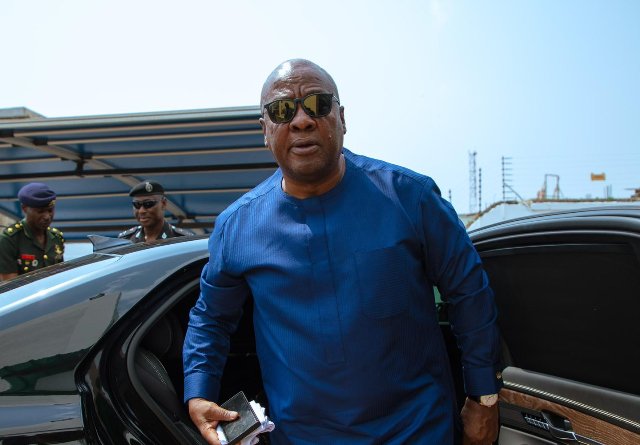In the ever-evolving theatre of Ghanaian politics, one spectacle remains constant: the New Patriotic Party’s (NPP) apparent obsession with the political future of John Dramani Mahama. It has now morphed from legal contention to a fear-driven narrative bordering on political paranoia.
Before the 2020 general elections, members of the NPP—some with legal and political clout—rushed to the Supreme Court to challenge Mahama’s eligibility to contest the presidency. Their argument, albeit legally unsound, was wrapped in constitutional posturing: they claimed that having served as President and subsequently lost in an election, Mahama had exhausted his eligibility under Article 66(1) and (2) of the 1992 Constitution. According to their strained interpretation, a defeated incumbent had no second chance.
The Supreme Court, in a measured ruling, dismissed this attempt to twist the constitutional logic. The Court upheld a fact so basic it should have been uncontroversial: that a President is allowed to serve two terms, consecutive or not. Since Mahama had served only one full term (2012–2016), his eligibility was not in question. That judgment, though a blow to the NPP’s pre-electoral strategy, should have laid the matter to rest.
Yet today, in an almost farcical turn of events, the same NPP is again attempting to stoke constitutional anxiety—this time claiming that President Mahama is plotting to entrench himself in power illegally. Their so-called evidence? His nomination of seven new justices to the Supreme Court.
The accusation is not just unfounded—it is laughably self-serving. Mahama, now in his lawful second term, has exercised his presidential prerogative to nominate qualified persons to the apex court. The same Constitution that empowers the President to appoint Supreme Court justices—with the advice of the Judicial Council and the approval of Parliament—is now being vilified by the very party that only recently benefited from its provisions.
What is deeply troubling is the intellectual dishonesty and political inconsistency at play. In 2019 and 2020, President Akufo-Addo, at the peak of his power, appointed numerous judges to the Supreme Court, some of whom were perceived as ideologically sympathetic to his party. At the time, the NPP defended this practice with robust rhetoric about executive authority and the need to shape a judiciary that reflects national values.
Today, when Mahama exercises the same constitutional authority, they brand it a “judicial coup” or a “plot for a third term.” This is not principled politics. It is opportunism wrapped in legal fallacies and fearmongering.
Mahama is serving his constitutionally permitted second term. And unless the Constitution is amended—which would require a national referendum—he cannot and has not attempted to, seek a third. If the NPP genuinely believes otherwise, it should present hard evidence to the Ghanaian people—not conjecture and conspiracy theories.
What is at stake here is larger than Mahama’s political future. It is the integrity of Ghana’s democracy. When legal institutions are used as weapons of political propaganda, the rule of law suffers. When the opposition is also framed as treason and constitutional acts are mischaracterized as subversion, our democracy loses its bearings.
However, Ghanaians are not fools. They can see through the fog of propaganda. The people know when the president is being unfairly targeted. They understand the difference between due process and political sabotage. They remember how the NPP celebrated the independence of the judiciary when it suited them, and how now they question the very same judiciary for doing its job under a different administration.
The hypocrisy is staggering. The fear that Mahama might appoint judges who interpret the Constitution without partisan lenses has gripped the NPP. But perhaps what they fear most is not Mahama’s appointments—it is the return of a government that they cannot control.
The judiciary should not be held hostage to political anxiety. It must remain independent, professional, and above the political fray. Ghanaians deserve a judiciary that upholds the law, not one that bends to partisan narratives.
As a country, we must call out this dangerous trend where political parties seek to rewrite the Constitution through press conferences, legal theatrics, and public deception. Let the law speak for itself. Let elections decide leadership. And let the institutions of state be respected—not weaponized.
If the NPP believes in democracy, it must learn to respect the rules of the game – even when it is not winning.


